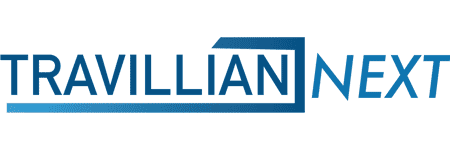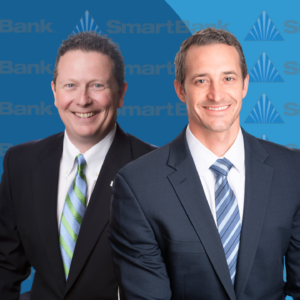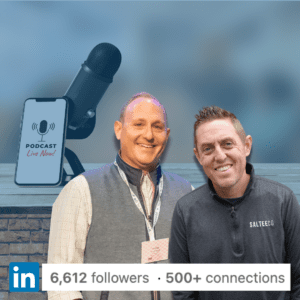It’s no secret that community banks are the lifeblood of small business, which, in turn, are the heartbeat of America. They are also a lifeline to millions of consumers for deposits and loans. With assets up to $10 billion, the 5,000-strong U.S. community banks that comprise this market are an impressive lot, one friendlier than the next. And while the community banking landscape has evolved over the decades, one thing that has remained is the need they fulfill and the relationships they foster across the United States.
We already know the critical role that these charters play in the U.S. economy, and they do so in innovative and engaging ways, including a strong social media game. However, if there was any doubt about their influence, the Independent Community Bankers of America (ICBA) put it to rest with its recent analysis. Community banks are behind roughly two-thirds of all small business loans and over three-quarters of agriculture loans in the United States.
Considering the ICBA designated April as Community Banking Month, we thought now would be the perfect time to show our appreciation to the industry. While there simply wasn’t enough time to talk to everyone, we could not be prouder to call every community bank — inside and outside the Travillian universe — our neighbors.
As a special thank you, we shined a spotlight on a handful of leaders steering the ships at these vital financial institutions: Jill Castilla, President and CEO of Citizens Bank of Edmond; Laurie Stewart, CEO and President of Sound Community Bank and Sound Financial Bancorp; and Brad M. Bolton, Community Spirit Bank President and CEO as well as ICBA Chairman. We hope you enjoy it. And while Community Banking Month may technically be ending soon, it serves as a good reminder that thanks to community banks and the rainmakers who run them, it’s always a beautiful day in the neighborhood.
1.) Jill Castilla, President and CEO of Citizens Bank of Edmond
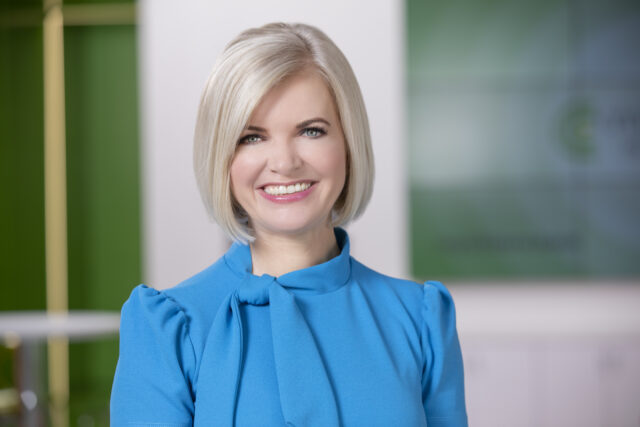
Founded in 1901 by a group of local citizens at the intersection of First and Broadway, Citizens Bank of Edmond in Oklahoma was one of only a handful of banks in the downtown area at the time. Since then, the bank has been right alongside the community through Dust Bowls and statehood, and it is the only one in that original batch left standing today, with $350 million in assets. Jill Castilla, who has been at the helm as President and CEO of the bank since 2014, has taken Citizens from bust to boom and continues to blaze new trails. An entrepreneur in her own right, Jill and Citizens famously teamed up with tech pioneer Mark Cuban to help consumers and small businesses when they needed it most — during the pandemic era. Jill took some time to share not only about the business of banking but how Citizens Bank and the Edmond, Okla. community depend on one another. Without further ado, here’s Jill:
Travillian: In what ways does your bank give back to the community, and how do employees get involved?
Jill Castilla: Citizens Bank of Edmond supports our community in many ways. For 121 years, Citizens Bank of Edmond has worked hand-in-hand supporting our local businesses and neighbors in achieving their goals and dreams — from the traditional sponsorship of local events to the utilization of social media by posting, sharing events or community news, to Citizens Bank’s very own bank-sponsored monthly street festival, Heard on Hurd. Heard on Hurd started in 2014 and brings together local music and more than 60 vendors including food trucks and pop-up shops. This event is hosted in downtown Edmond the third Saturday of every month from March to October. It regularly attracts around 30,000 local community members who come out and support these local, small businesses and artists. Heard on Hurd is completely planned, hosted, and staffed by Citizens Bank employees. Heard on Hurd has led to a massive redevelopment and revitalization of downtown Edmond, and to date, has generated more than $60 million in economic impact.
Travillian: How do you best attract new consumer and small business customers to the bank?
Jill Castilla: Many of our customers want to bank with us after seeing how engaged and supportive we are of our community. Utilizing social media also allows us to connect with potential and current customers. Citizens Bank of Edmond itself is a small business, so we can easily relate to the challenges and struggles that small businesses face and are able to walk through many of the phases of small business ownership with them. In March 2022, Citizens Bank of Edmond received official Federal Reserve designation as a Women-owned depository institution. The OCC lists only a dozen owned/women-led banks in the nation. The diversity of our bank’s ownership and management has been a source of stability and innovation for our 121-year history.
Travillian: How has the bank’s approach to digitization changed, if at all, in the wake of the pandemic? Are those changes here to stay?
Jill Castilla: Like many small businesses, Citizens Bank had to quickly adapt during the pandemic and put more focus into our online offerings. We partnered multiple times with Mark Cuban to support our community and small businesses during the coronavirus pandemic. First, we formed an overdraft line program that allowed customers to overdraw $900 from their accounts while waiting for their stimulus checks to arrive then challenged the nation’s financial institutions to do the same. We then launched PPP.bank, the first streamlining of the cumbersome application process for Paycheck Protection loan forgiveness and pledged not to collect or sell the small business data entered. There were several opportunities for Citizens Bank to partner and work with fintech companies to help streamline our products so that we, and our customers, didn’t miss a beat. The adoption of fintech in community banking is extremely valuable and these partnerships and collaborations will likely remain for the foreseeable future. We aim to show up and be accessible to our customers and community when they need us most.
2.) Laurie Stewart, CEO and President of Sound Community Bank and Sound Financial Bancorp
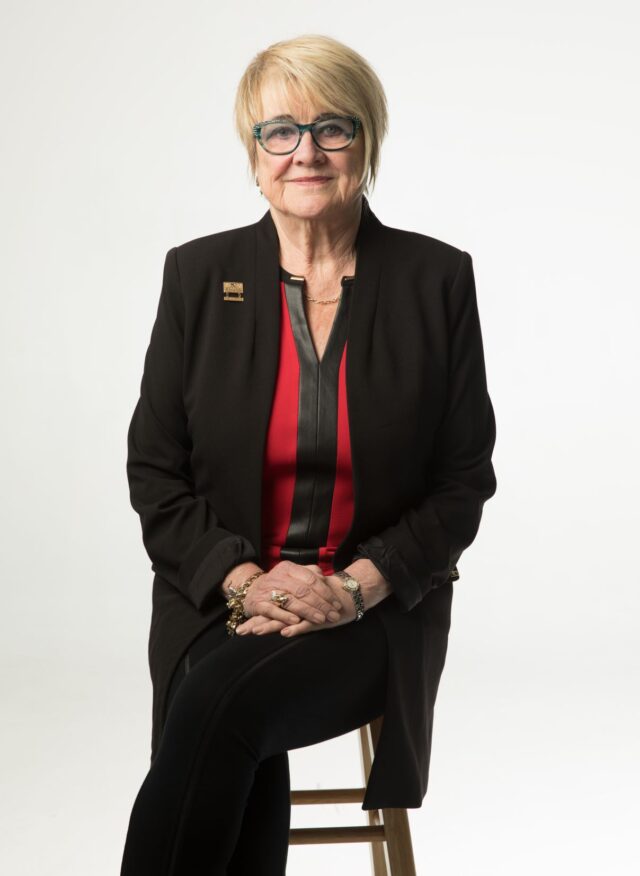 Seattle, Wash.-based Sound Community Bank has been serving the community since 1953. Originally chartered as a credit union, Sound Community got its feet wet in financial services by servicing the staff of supermarket wholesaler Associated Grocers. Since then, Sound Community has since expanded to serve over 15,000 households and merchants across eight retail branches and a loan production office. With close to $1 billion in total assets, Sound Community is out front for its leading-edge technology coupled with personable service. Laurie Stewart, former chair of the American Bankers Association (ABA), is at the helm of Sound Community Bank as CEO and President. Repeatedly recognized as a power player in banking by the business and mainstream media, Laurie’s voice is widely recognized in Seattle and beyond. She took some time to share more about the role that Sound Community plays in the Puget Sound region. Without further ado, here’s Laurie:
Seattle, Wash.-based Sound Community Bank has been serving the community since 1953. Originally chartered as a credit union, Sound Community got its feet wet in financial services by servicing the staff of supermarket wholesaler Associated Grocers. Since then, Sound Community has since expanded to serve over 15,000 households and merchants across eight retail branches and a loan production office. With close to $1 billion in total assets, Sound Community is out front for its leading-edge technology coupled with personable service. Laurie Stewart, former chair of the American Bankers Association (ABA), is at the helm of Sound Community Bank as CEO and President. Repeatedly recognized as a power player in banking by the business and mainstream media, Laurie’s voice is widely recognized in Seattle and beyond. She took some time to share more about the role that Sound Community plays in the Puget Sound region. Without further ado, here’s Laurie:
Travillian: What does community banking mean to you?
Laurie Stewart: We often say Community is our middle name. And, while this may seem “cute,” it is a sincere expression of our commitment to sustain and enhance those communities where we do business by offering access to capital to achieve financial dreams, an efficient and free payment system and a wealth of savings options. We also volunteer and donate and again earned recognition as a top philanthropist in our market.
Travillian: In what ways does your bank give back to the community and how do employees get involved?
Laurie Stewart: One of our core values is to support the communities where we do business. This involves both financial support and volunteering. Every employee is expected to volunteer, and this is measured on our quarterly scorecards. We provide time off for volunteering and we match charitable donations. Our community support is also tied to employee participation. We rarely donate to an organization that does not have a bank volunteer champion.
Travillian: How do you best attract new consumer and small business customers to the bank?
Laurie Stewart: Our best source of new relationships is a referral from a satisfied consumer or business client. We offer a refer a friend program and we track all sources of new accounts. Our participation in our communities, featuring employees and clients in promotions and social media, and our values-based service sets us apart.
Travillian: How has the bank’s approach to digitization changed, if at all, in the wake of the pandemic? Are those changes here to stay?
Laurie Stewart: Like others, the impact of the pandemic was an accelerated acceptance of digital banking. Our seniors were especially grateful for contactless transactions. We vastly improved our real estate portal, and our PPP loans were almost entirely self-serve, which allowed us to process twice as many as anticipated. A banker was available to help, but clients readily accepted using the portal.
Travillian: What local and industry initiatives are you most excited about in 2022?
Laurie Stewart: Our strategy includes continued enhanced digital offerings along with a concerted effort to streamline operations. Branches are far less transaction hubs with a new focus on developing relationships and client consultations.
Travillian: Do you have any ESG initiatives to discuss?
Laurie Stewart: We have published a sustainability report for almost a decade. This document identifies how we sustain and support the earth, our communities and our pod members (with a whale logo we fondly refer to our employees as members of the pod).
3.) Brad M. Bolton, Community Spirit Bank President and CEO as well as ICBA Chairman

As the oldest business in Red Bay, Ala., Community Spirit Bank, in the words of Chairman Billy M. Bolton boasts a “spirited history,” one that has seen the bank serve multiple generations. As a family-run business, with Brad M. Bolton serving as President and CEO, Community Spirit Bank continues to innovate while staying true to the relationship-based business model of community banking. With $180 million in assets, Community Spirit Bank boasts four branches in Alabama plus a branch and LPO/DPO in Mississippi. Brad, who is also serving as chairman of the Independent Community Bankers of America (ICBA), took some time to share his thoughts about shaping community banking relationships through the lens of both Community Spirit Bank and the ICBA. Without further ado, here’s Brad.
Travillian: What does community banking mean to you?
Brad Bolton: Community banking is relationship banking. Community bankers work, worship, live and serve with members of our communities every day by building better communities. We are independent and focused solely on the customers and communities in which we serve and truly help give a voice to those who have no voice when it comes to the effects that regulations may have upon our communities. Community bankers are protectors of Main Street in every community across this nation because of our relationship-focused business model. We are accessible, responsive and accountable to our customers and are with them throughout their financial journey.
That is what community banking means to me.
Travillian: In what ways does your bank give back to the community, and how do employees get involved?
Brad Bolton: Community Spirit Bank is no different than any community banker throughout this country. We take local deposits, make local loans and reinvest profits back into the communities we serve. There is not a civic, school or community function that our bank or other community bankers are not involved in.
Specifically, we invest in training up the next generation of leaders through our financial literacy footprint. We provide financial literacy software in 13 area schools as well as two in school financial literacy branches. Our staff is constantly involved in serving on local boards, city and county government or economic development boards. As such, we strongly encourage our employees to take active roles to serve our communities wherever possible and we provide financial support to many events.
Wherever you see a fundraising effort at a local level, you will always find a community bank first on the list of supporting the cause with our time, talent, resources and funds.
Travillian: How do you best attract new consumer and small business customers to the bank?
Brad Bolton: I believe our best way of attracting consumer and small business customers to the bank is through referrals. Our core values drive everything we do at the bank. We act with integrity and are dedicated to our customers and knowledgeable of our products and the market. This helps them make better decisions. We use technology to provide innovative opportunities for them to do business with us, and that all leads up to exceptional WOW customer service moments. We pride ourselves on being accessible, responsive and accountable to our customers, so it is truly a holistic approach that depends on referrals based on how we treat our customers.
We use technology to make it easy for customers to do business with us. We have the power to make a loan decision quickly as well. For example, yesterday, a small business owner called me for some cash flow needs. I made the deal within a five-minute conversation, had his loan prepared and sent to his email for execution and the funds were deposited within two hours of the request. That is relationship-focused community banking at its best! That customer from that experience will tell others. Through technology, we can service customers on their time.
So that is a combination of relationship-focused banking fueled by technology to meet the needs of our customers.
Another example is being involved in the community, being proud to promote what the bank is doing via social media, and that has led to new relationships. I had a business that recently reached out to me on a need they had, for which a local competitor had been unresponsive. I was on vacation when I first got the cold call from that company, but I was happy to take their call and hear their need. Before their next business day, I had drafted what I felt we could put together for them. They ultimately chose not to pursue the venture, but the client told me that it made such a difference that I was willing to stop what I was doing — even on vacation — and draft a proposal. In that proposal, I shared every aspect of how the deal would work and the pros and cons of what we would put together. He stated that even though they didn’t pursue the deal, the responsiveness will definitely lead them back to us in the future.
Travillian: How has the bank’s approach to digitization changed, if at all, in the wake of the pandemic? Are those changes here to stay?
Brad Bolton: Technology is the great equalizer for our community banking industry, and it is here to stay. Community banks are constantly adapting to new technologies to make it easy for our customers to do business with us. I serve a customer who moved away after graduating college, but he still banks with us because of the digital footprint we have established via online and mobile banking, mobile deposit and digital signature capabilities. This allows us to meet customers where they live.
The pandemic accelerated the need for digital execution, but community banks and customers have embraced it as the new normal, and going forward, will be more digitally focused in delivery while maintaining our relationship-focused business model.
Travillian: What local and industry initiatives are you most excited about in 2022?
Brad Bolton: For our bank, we are in the middle of a CORE conversion, moving from older banking software to a newer system that will allow us to better serve our customers. We have been on the same CORE since the early 1980s, and although the change will impact how our customers will bank with us, the future will be better for our ability to serve our customers’ needs.
From an industry perspective, the Independent Community Bankers of America established the ICBA ThinkTECH Accelerator program in 2018, and each year’s cohort of fintech companies gets better and better because of the direct community banker and fintech collaboration. ICBA uses innovative opportunities and partnerships that allow our community bank members to grow their technology offerings.
I am excited that community bankers like mine and others across the country continue to embrace all things digital and technology to serve our customers and communities while maintaining the relationship-focused manner in which we do business.
Thank you, Jill, Laurie, and Brad, as well as the bank teams and the ICBA, for participating in Travillian’s outreach.
